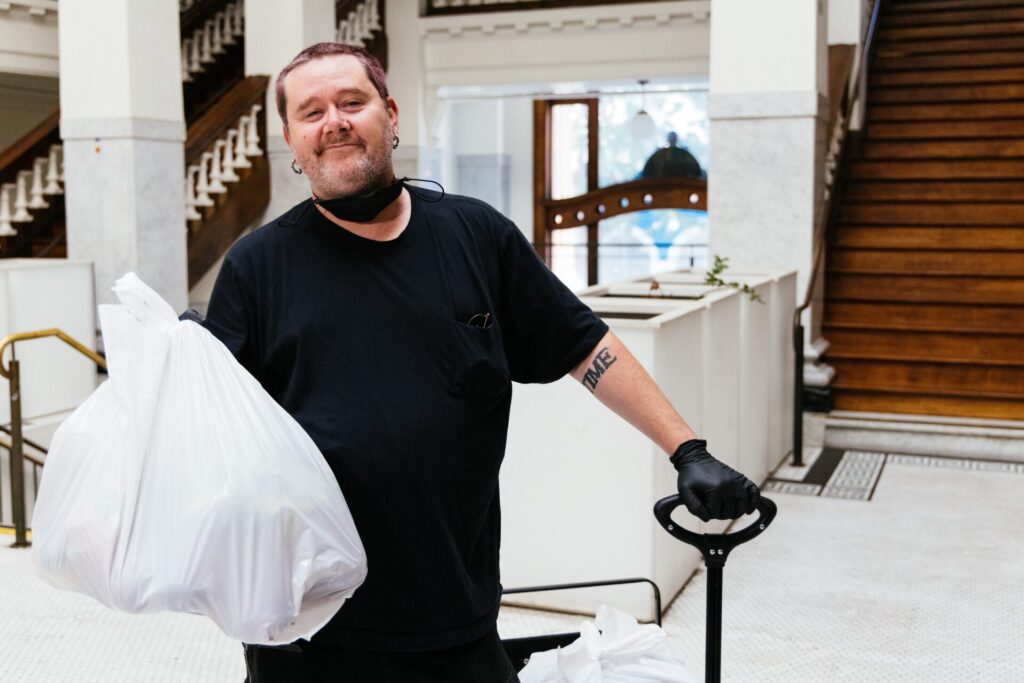
Coming from an Italian family where a full belly was the highest compliment, Food Bank volunteer Sam grew up knowing that food was “a big deal.”
“Without food, I feel like life would be boring,” he shared. “Food is a way for people to show how much they care about people, without knowing how to say it or show it otherwise. I feel like you can solve a lot of problems with food.”
In July of 2021, food helped Sam solve a problem of his own: how to occupy his time as a newly sober person. Meditating on the value of food in his own life, and as a safety net and springboard for others, he decided to volunteer with the Food Bank.
“Trying to Make a Life”
After a short stint packing grocery bags at the San Francisco warehouse, Sam began delivering fresh food to the doorsteps of homebound neighbors. But soon, he was wondering how he could make an even greater impact. Eager to build a consistent routine and establish a connection with folks on his route, Sam “adopted a building” to deliver food to the same families in the Tenderloin each week.
Reflecting on his experiences over the past three years, Sam was quick to counter common misperceptions about food insecurity in the Tenderloin: “I deliver food to not just folks who are in from the cold, but a lot of people who are trying to make a life and get back on their feet,” he shared. “There are families in these neighborhoods that need this service. They’ve got children they have to feed.”
Underscoring Sam’s point, only 3% of Food Bank participants are unhoused and 60% have at least one member of the family working. It’s clear that homelessness and unemployment are not the drivers of food insecurity in our community. That’s why we’re working with partners, advocates and volunteers like Sam to address hunger at its root: income inequality, the sky-high cost of living, systemic inequities and an insufficient social safety net.
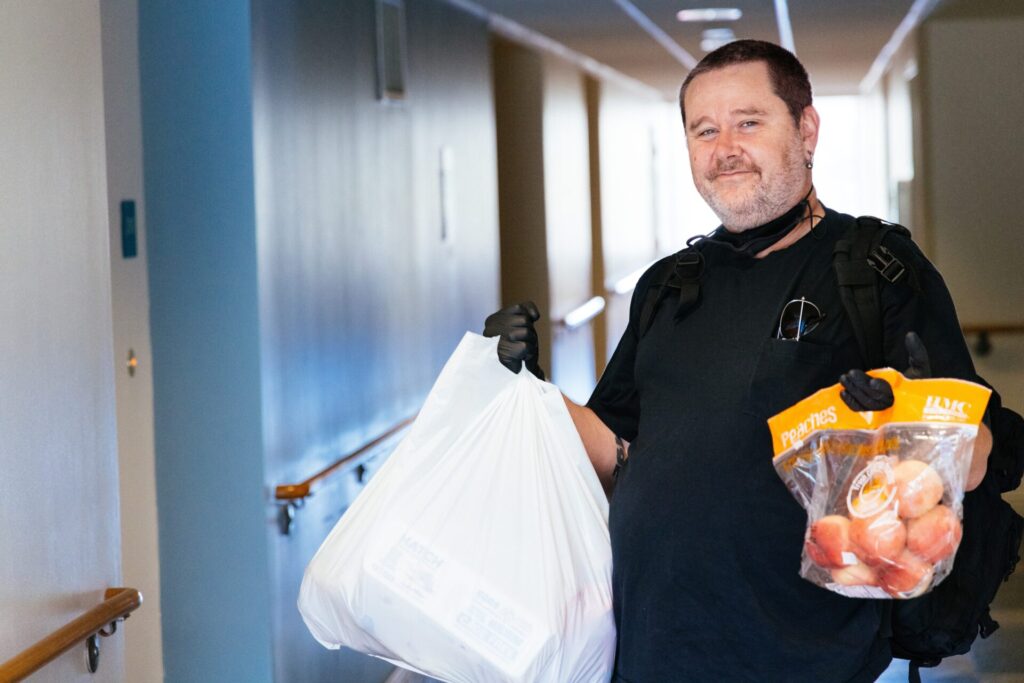 Haircuts and Healthy Groceries
Haircuts and Healthy Groceries
Born and raised in Potrero Hill, Sam is determined to keep making a difference in the city that he loves. “I believe that whatever small thing I can do is still a note better than nothing,” he told us.
But Sam’s dedication is no “small thing” by any measure. To date, he’s shared more than 130,000 pounds of food with neighbors and volunteered more than 700 hours of his time. He delivers to 75 households weekly. And he’s even picked up some unlikely tools – scissors and a razor – to better meet the needs of his neighbors.
“I started the barber thing in January of this year. I let everybody [on my route] know upfront: ‘I’m a student barber, but I’m totally willing to give you a free haircut.’ There was one gentleman who really sticks out to me, his name was Paul. I got him cut up looking good. His afro was looking tight, got him a good shave going. He was rocking his handlebar mustache after I was finished. He was giddy almost with excitement,” Sam laughed.
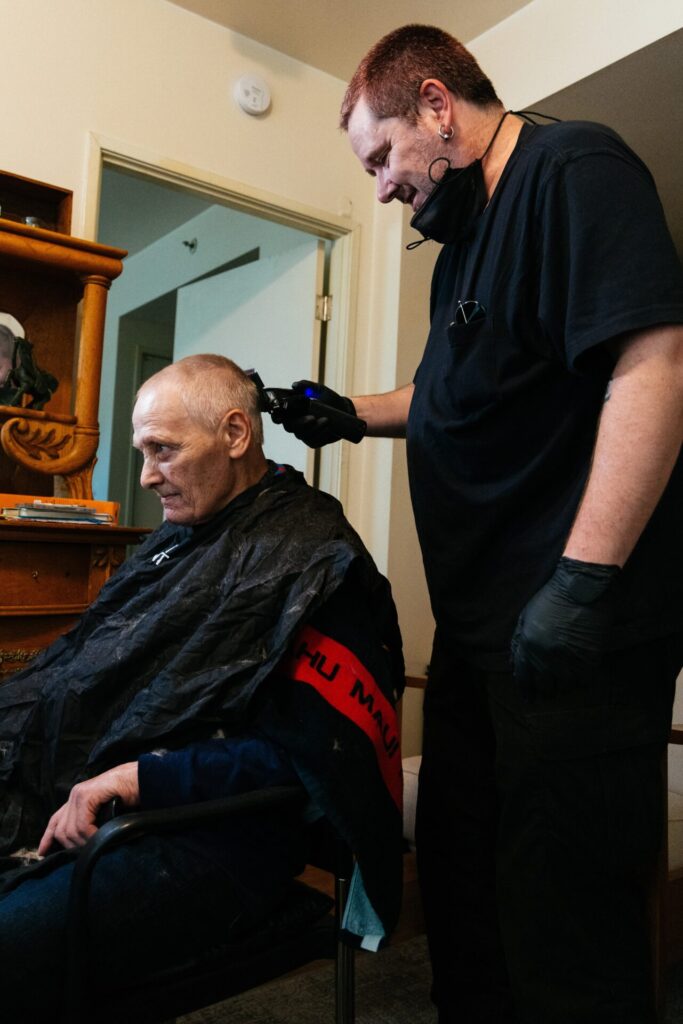 “Kindness is Strength”
“Kindness is Strength”
From trims to line-ups, Sam is building his barbering repertoire while building connections with his neighbors – including a participant on his route who is a barber herself! His driving ethos is the same through it all: “What can I do to lift this person up, to empower them to take the reins and then go forward?”
Whether through food, friendly conversation or a solid shave, Sam’s compassion shows up in every interaction. And when asked to make an elevator pitch for becoming a driver for Home-Delivered Groceries, his call to action is simple.
“In the world now, being kind to one another is the strongest thing that you can do for your fellow human being. Kindness is strength. And there are a lot of people who are stronger than they think they are.”


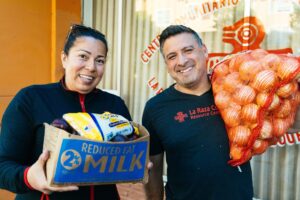
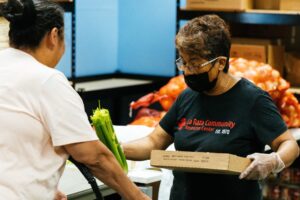
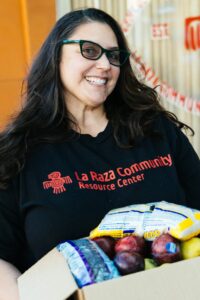
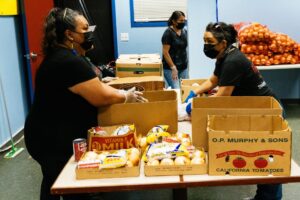
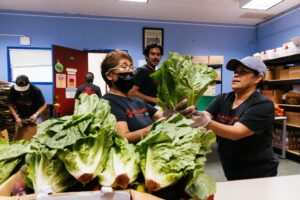
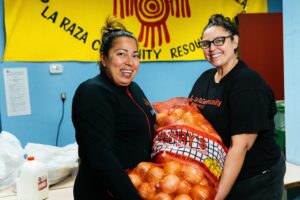
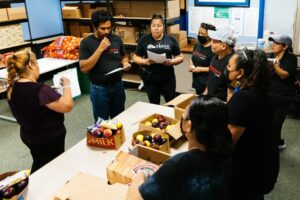


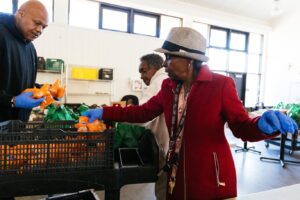
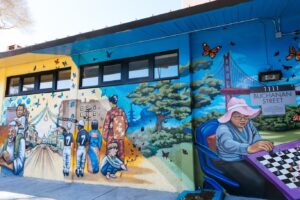 Ms. Adrian: My daughter is the president of the
Ms. Adrian: My daughter is the president of the
Share